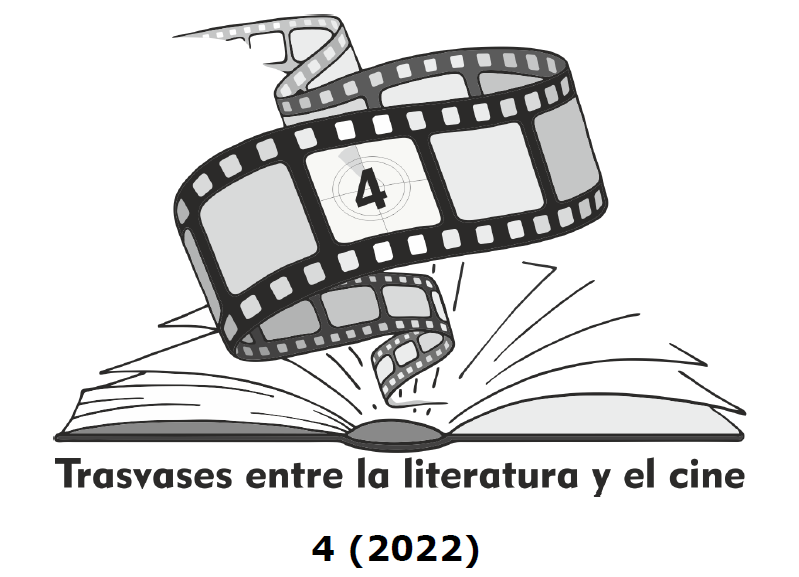The adaptation of Perdita Durango: from Barry Gifford to Álex de la Iglesia
DOI:
https://doi.org/10.24310/Trasvasestlc.vi4.13669Keywords:
Rituality, santeria, border, adaptation, criminal, memory, postmodernityAbstract
This article discusses the film adaptation of the novel 59 Degrees and Raining: The Story of Perdita Durango by Álex de la Iglesia, contextualizing Barry Gifford's literature, his cinematographic imaginary, his relationship with industry, and with other directors. We consider the references on which the book's plot and the adaptation are based, as well as we also consider links, influences and omissions on which the film is founded. The article concludes with the postmodernist correlation of both stories, in which the quotation is articulated as a rememoration of the cinematographic image in the social imaginary.
Downloads
Metrics
Publication Facts
Reviewer profiles N/A
Author statements
Indexed in
-
—
- Academic society
- N/A
- Publisher
- Universidad de Málaga
References
ANGULO, Alex y SANTAMARINA, Antonio (2012), Alex de la Iglesia. La pasión de rodar. San Sebastián, Filmoteca Vasca.
BARDEM, Carlos (1997), Durango Perdido. Diario de rodaje de Perdita Durango. Barcelona, Ediciones B.
BAUDRILLARD, Jean (1978), Cultura y simulacro. Barcelona, Kairós.
BAUDRILLARD, Jean (1997), El complot del arte. Ilusión y desilusión estéticas. Amorrortu, Buenos Aires.
BOTELLA, Miquel (2020), «Barry Gifford, el sueño turbulento de una América surrealista», [En línea: https://ciudadcriolla.com/2020/08/25/barry-gifford-el-sueno-turbulento-de-una-america-surrealista/ Fecha de consulta: 07/03/2021].
BUSE, Peter (2013), The cinema of Álex de la Iglesia, Manchester, Manchester University Press. Edición Kindle. www.amazon.com
CAPOTE, Truman (1995), Retratos. Barcelona, Anagrama.
DE LA IGLESIA, Álex (1997), «De cómo ocurrió todo, en pocas palabras», en P. Calleja (ed.), Perdita Durango, Madrid, Alberto Santos, págs. 35-40.
FONTE, Jorge (2012), Russ Meyer. Madrid, JC.
GALLEGO, Mercedes (1996), «Álex de la Iglesia rueda en México “Perdita Durango” una historia de “sexo y acción”» El País, 2 de septiembre de 1996. [En línea: https://elpais.com/diario/1996/09/02/cultura/841615201_850215.html Fecha de consulta: 01/03/2021].
GARCÍA, Rocío (1996), «Javier Bardem será el protagonista masculino de Perdita Durango», El País, 10 de mayo de 1996. [En línea: https://elpais.com/diario/1996/05/10/cultura/831679213_850215.html
Fecha de consulta: 01/03/2021].
GIFFORD, Barry (1997), Perdita Durango. Barcelona, Anagrama.
GIFFORD, Barry (2000), Out of the past. Adventures in Film Noir. Jackson, University Press of Mississippi.
GIFFORD, Barry (1995), Corazón salvaje. Barcelona, Orbis & Fabri.
GIFFORD, Barry (2004), Brando rides alone: A Reconsideration of the Film 'one-Eyed Jacks'. North Atlantic, Berkeley, North Atlantic.
GIFFORD, Barry (2021), Back in America. Sevilla, Renacimiento.
GIFFORD, Barry (1997), El padre fantasma. Barcelona, Destino.
GIFFORD, Barry (1995), Gente nocturna. Barcelona, Plaza & Janés.
GIFFORD, Barry (1993), La vida desenfrenada de Sailor y Lula. Barcelona, Circulo de Lectores.
GIFFORD, Barry (2006), El libro de Jack. Una biografía oral de Jack Kerouac. Barcelona, Bronce.
GUTIÉRREZ, Koldo (2014), Jorge Guerricaechevarría. Revista Cactus [En línea: https://www.revistacactus.com/jorge-guerricaechevarria/
Fecha de consulta: 07/03/2021].
GORKI, Maxim (1896), «En el reino de las sombras», [En línea: http://www.inkinoveritas.com/textos/enelrein.htm Fecha de consulta: 12/04/2021].
JARQUE, Fietta (1995), «“Novela y cine son hermanos de sangre”, afirma el escritor Barry Gifford» El País, 10 de marzo de 1995. [En línea:
https://elpais.com/diario/1995/03/10/cultura/794790014_850215.html Fecha de consulta: 1/03/2021].
MR. SANDMAN, (2009), «Barry Gifford en el Abycine´09» [En línea: http://www.vadecine.es/vadecine2/dossier/entrevistas-mainmenu-34/17-entrevista/1405-barry-gifford-en-el-abycine09 Fecha de consulta: 05/03/2021].
NABOKOV, Vladimir (1997), Lolita, Londres, Penguin.
ORDÓÑEZ, Marcos (1997), La bestia anda suelta ¡Alex de la Iglesia lo cuenta todo!, Barcelona, Glènat.
REYO, Ignacio (2012), «Barry Gifford» [En línea: https://ignacioreyo.wordpress.com/2012/10/21/barry-gifford/ Fecha de consulta: 06/03/2021].
REYO, Ignacio (2012), «Barry Gifford. Entrevista sobre David Lynch», [En línea: https://ignacioreyo.wordpress.com/category/cine/david-lynch/ Fecha de consulta: 07/03/2021].
RISSO, Lucas (2017), Alex de la Iglesia. Un cine ferpecto, Cinespacio. Edición Kindle. www.amazon.com
SÁNCHEZ NAVARRO, Jordi (2007), Freaks en acción. Alex de la Iglesia o el cine como fuga. Madrid, Calamar.
SIMMONS, Garner (2007), Sam Peckinpah. Vida salvaje. Madrid, T&B.
TEJERO, Juan (2008), «El conquistador de Mongolia» en ¡Qué ruina de película! Madrid, TB, 188-196.
TERRAZAS, Kyzza (2012), «Cátedra Bergman. Sesión extraordinaria con Barry Gifford», [En línea:
https://es.scribd.com/document/117367417/Catedra-Bergman-Barry-Gifford Fecha de consulta: 07/03/2021].
VIDAL, Gore (1991), Screening History, Cambridge, Harvard University Press
VV. AA. (1997) “Notas de producción” en P. Calleja (ed.), Perdita Durango, Madrid, Alberto Santos, págs. 130-140.
VV. AA. (1999), Quiero la cabeza de Alfredo García. Madrid, Notorius.
Downloads
Published
How to Cite
Issue
Section
License
All authors published in this journal accept the following copyright terms:
a. Authors retain their authors´ rights (copyright) and grant First Publication Rights to the journal, which whill be published under a the Creative Commons Attribution-NonCommercial-ShareAlike 4.0 International (CC BY-NC-SA 4.0) license. All about this license is available in the following link: <http://creativecommons.org/licenses/by-nc-sa/4.0>
b. Authors may separately establish additional agreements for the non-exclusive distribution of the version of the work published in the journal (e.g. including it in an institutional repository, or publishing it in a book) with an acknowledgement of its initial publication in this journal.
c. Authors are allowed and encouraged to disseminate their work electronically (e.g. in institutional repositories or on their own website) as this can lead to productive exchanges, as well as earlier and more extensive citation of published work.
The author is responsible for obtaining permission from the copyright holder when using copyrighted materials.
This electronic journal is published by University of Málaga (UmaEditorial), thus it is necessary to cite the origin of any partial or total reproduction.








22.png)










